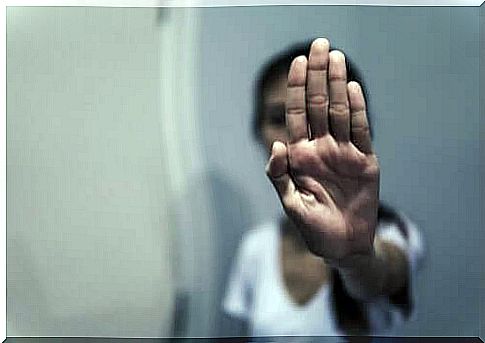How To Recognize And Act On Verbal Abuse

Verbal abuse, as the name implies, is a form of assault or aggression. It should therefore not be allowed. If you find verbal abuse, you must take action and report it. In fact, it should be eradicated as a kind of emotional abuse as it affects the dignity of the victim.
What is Verbal Abuse?
Verbal abuse is defined as an “excessive use of language to undermine someone’s dignity and safety through insults or humiliation, either suddenly or repeatedly.” This definition shows us that it can come in different forms.
That is, it can be an insult, a rude remark, etc. Because of this, the dignity and self-esteem of the abused person is tarnished by the abuser, who thinks he has the ‘authority’ or ‘privilege’ to act in this way. to attack another person.
Verbal abuse, as a type of emotional abuse, can occur in any situation and affect anyone. Because of this, it can happen to children, adolescents, adults or the elderly. In addition, it can occur in different environments such as between couples, among friends, at work, etc.
How to recognize verbal abuse

Verbal abuse means insults and degrading behavior towards other people. Verbal abuse does not leave bruises or wounds, but it is a form of abuse and aggression. However, it is more difficult to detect. It can include:
- Aggressive outbursts (insults and humiliation).
- accusations.
- Blame the other person.
- To judge or criticize in a degrading or rude way.
- Minimize or belittle the victim.
- contempt.
- Ordering or demanding things, yelling.
- Threats.
- Humiliating nicknames.
Everyone can sometimes lose their cool and ‘go over the line’. However, if that happens, then you need to think and ask for forgiveness, acknowledging the damage the other person has suffered.
Yet verbal abuse is a repeated and deliberate act of humiliating and belittling the other person whom the abuser considers inferior.
Examples of verbal abuse
Below we will give some examples of verbal abuse so that you can more easily recognize it when you come into contact with it:
- In a relationship. One of the couple’s members “demands” things instead of asking for them. They are arrogant and humiliate the other. The abuser thinks that the other person is there for everything he wants and that he is worth nothing. They also think that the other person has to “serve” them.
- In a group of friends. The abuser uses demeaning and hurtful nicknames. They can also threaten or humiliate the victim in front of everyone.
- At work. The boss gives orders with rude comments, even in front of everyone, to talk to an employee or talk about his work. There are public or private insults. The criticism is constant, demeaning and unconstructive.
- Elderly. For example, a caregiver insults his patient and orders him to do things without respecting, belittling and humiliating him.
- Parent-child relationship. The parents use demeaning nicknames for their child, insult him or mock him by saying he knows nothing or is useless. Especially in the case of children, the marks left by abuse can last long after they have reached adulthood.
What can you do about it?

If you are confronted with a situation of abuse, you must stop or report it. The first step is to be able to recognize verbal abuse when it happens. The important thing is to identify the problem first, because if you don’t, there’s nothing you can do to avoid it.
Second, you have to set limits. In fact, these boundaries should already exist before the relationship begins. That way, the abuser understands that they don’t have the privilege or right to humiliate you.
On the other hand, if setting boundaries won’t stop the abuse, then you need to seek help, which depends on the environment in which the abuse takes place.
For example, if the verbal abuse occurs in a relationship, a therapist or counselor can intervene. If there is abuse, you must always report it.
Ask for help
If the verbal abuse occurs among minors at school, the victim must notify the school and their parents so that they can apply the anti-bullying protocols at school.
In any case, asking for help or reporting are the most important steps. It is not easy, and often the victim, because of his low self-esteem, ends up in a dependency relationship on his abuser.
Other times, fear of the consequences prevents victims from reporting or asking for help. In fact, the perpetrator can threaten them if they do something like that (for example, a boss threatening to fire you because you reported it).
The most important step, therefore, is to overcome your fear and report this kind of abuse. Only then will it stop and the victim can finally restore their dignity and self-esteem.









